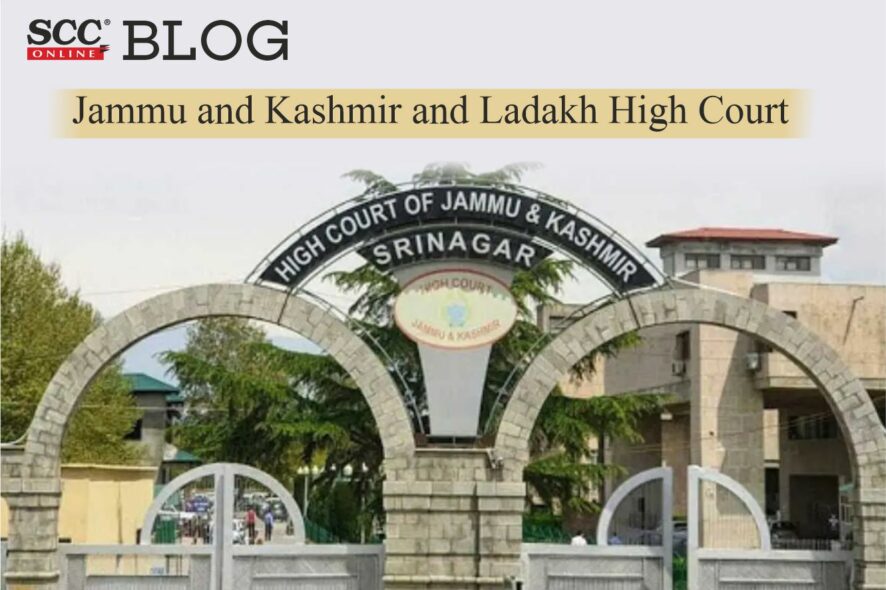Jammu & Kashmir and Ladakh High Court: While deciding the instant petition filed by 3 retired State Bank of India employees, who had retained their respective government accommodations and were aggrieved with the rent being charged at commercial rate; the bench of Sindhu Sharma, J., dismissed the petition on the ground that the petitioners do not have any indefeasible right for allotment of government accommodation. The government accommodation is meant for serving officers and not retirees.
Facts of the case: The petitioners, while they were in service of the State Bank of India, were allotted residential accommodation in the SBI Officers’ Flats situated in Jammu, at nominal monthly rents. Post retirement, upon the petitioners’ retention of the accommodation, the Bank started charging rent at commercial rate from their pension accounts. Aggrieved by this deduction, the petitioners came to the Court.
Contentions:
-
Claiming the charging of rent at commercial rate as illegal, the petitioners submitted that they are migrants and have suffered the calamity which struck in 1990, due to which the Kashmiri Pandits migrated from the Kashmir Valley to Jammu and various other States. Due to disturbances in the valley, many State and Central Government Employees migrated from Kashmir Valley to Jammu including the petitioners. The petitioners were registered as migrants and were also issued migrant ration cards by the State Government. The State as well as the Central Government have allotted residential accommodation to those migrant employees, who were forced to leave Kashmir Valley by abandoning their moveable and immovable property.
-
It was further contended by the petitioners that given their current position, the findings of the Supreme Court in J.L. Koul v. State of J&K, (2010) 1 SCC 371 apply to them as they are similarly situated as the petitioners in afore-mentioned case. The petitioners stated that they are migrants from Kashmir and, therefore fully entitled to reside in the residential accommodations provided to them by the Bank.
-
The petitioner also submitted that they have no other residential accommodation in Jammu, thus they have no other choice than to reside in their allotted residence.
-
It was also contended that the charging of commercial rate of rent by the Bank which was forcibly debited from the petitioners’ pension accounts, is bad, arbitrary and should be set aside. to be set aside. The illegal deduction of rent at commercial rates from the petitioners, who are retired officials and have been provided accommodation on account of them being migrants, is discriminatory and violative of Art. 14 of the Constitution.
Per contra, the respondents put forth the following contentions-
-
It was argued that the petitioners cannot invoke the extraordinary jurisdiction of this Court as they have not approached with “clean hands”. The respondents pointed out that the petitioners are owners of their respective flats in places like Delhi and Mohali.
-
It was also submitted that the flats were allotted to the petitioners as they were employees of the Bank. It was contended that as per the Bank policy highlighted in clause 19.11.1 of the HR Handbook, Volume 1 issued by the Home Resources Department, SBI; the officers may retain the accommodation up to the maximum period of two months from the date of normal retirement without any approval. Any retention beyond the permitted period would be dealt with as per instructions like recovery of commercial rent.
-
The respondents submitted that the petitioners’ reliance on J.L. Koul case is misplaced, as they were not allotted the accommodation on the basis of their being migrants from the Valley rather the accommodation was allotted to them by virtue of their being serving employees of the Bank on nominal license fee.
Observations and Decision: Perusing the facts and the contentions submitted by the parties, the Court noted that the issue of retention of government accommodation by Kashmiri migrant employees was considered in Union of India v. Omkar Nath Dhar, (2022) 1 SCC 40, wherein the Supreme Court held that Kashmiri migrants, who were once Government employees, cannot retain Government accommodation for indefinite period on the ground that “they would return to the Valley when the situation will improve”.
Applying the ratio of the above-mentioned case on the facts of the instant petition, the Court decided that petitioners have concealed material facts from the Court and upon revelation of those facts, the petitioners cannot be said to have enforced their right to shelter, since they already have an alternate accommodation.
The petitioners were directed to vacate their respective government accommodations. However, since they were retired employees, 30 days’ time was granted to them in order to vacate and handover the possession of the flats to the respondents-authorities.
[Indar Krishan Raina v. Union of India, 2022 SCC OnLine J&K 477, decided on 03-06-2022]
Advocates who appeared in this case :
Sunil Sethi and Navyug Sethi, Advocate, for the petitioners;
Sumeet Bhatia, Advocate, for the respondents;
*Sucheta Sarkar, Editorial Assistant has reported this brief.







